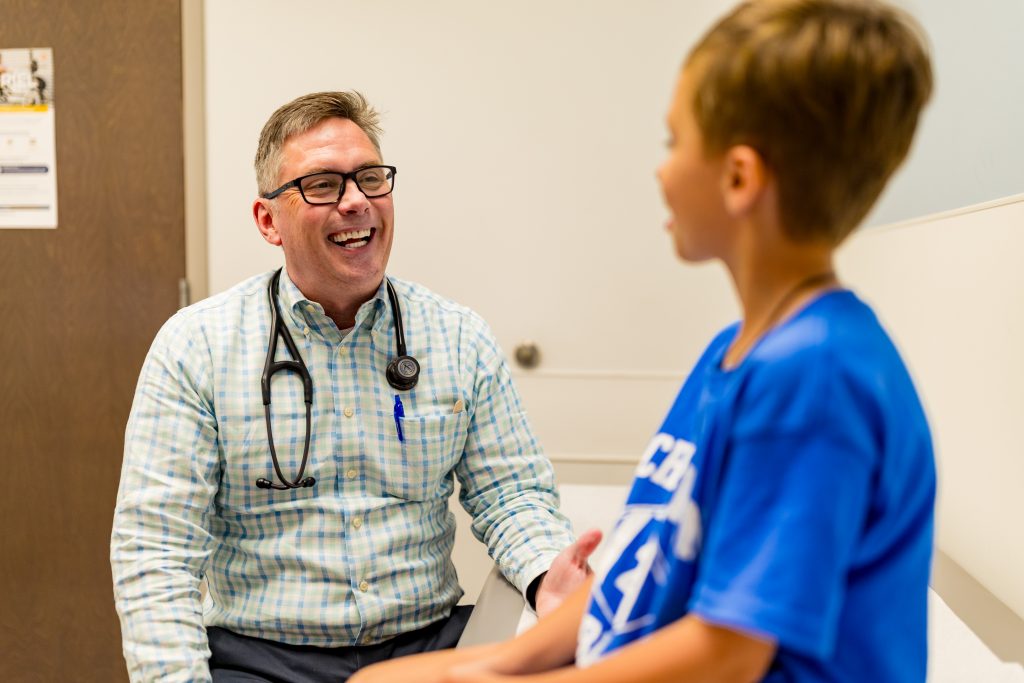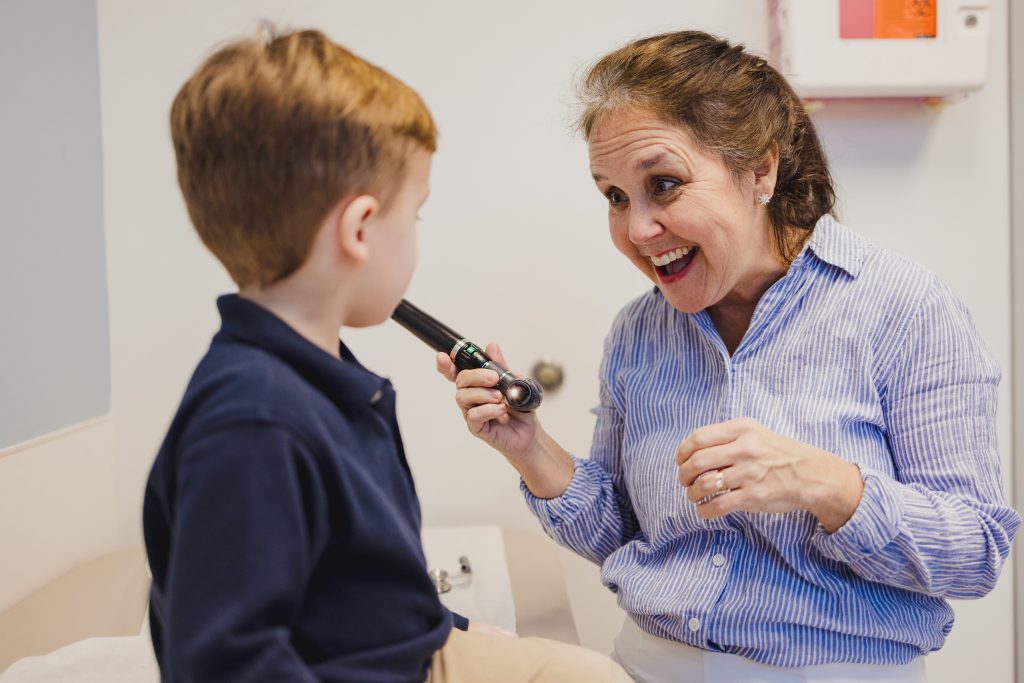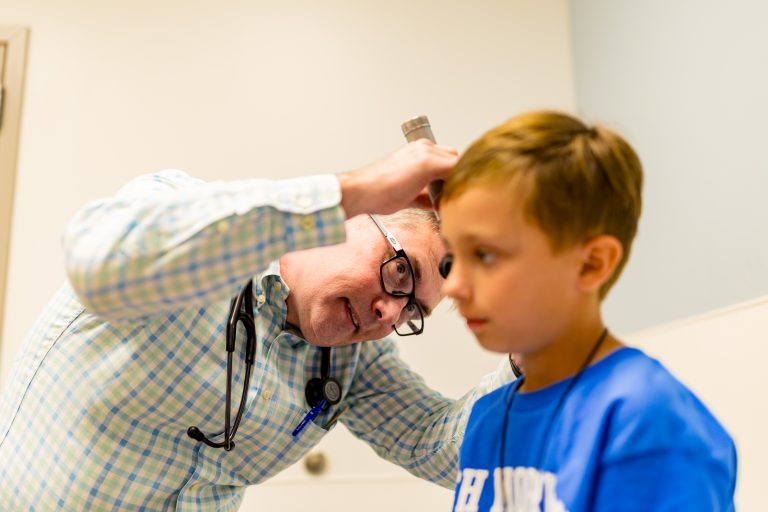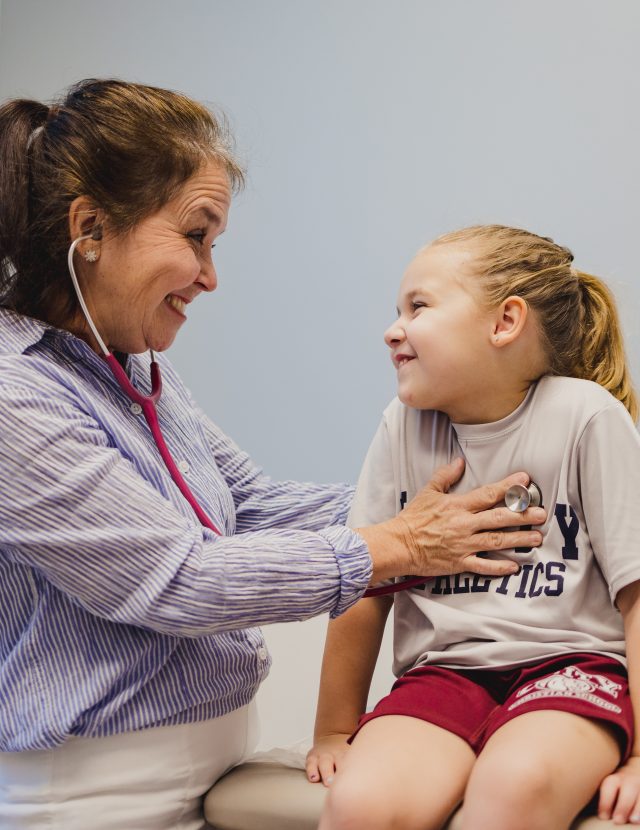
Photos Cameron Flaisch
Typically, folks have mixed feelings about the waning days of summer and the approach of a new school year. It means vacation is over and it’s time to return to a stricter, more disciplined schedule. On the other hand, it brings new adventures in learning, both academic and social, to the lives of children. Negotiating these twists and turns is not always easy, so Harbin Clinic Pediatrics is here to help children and parents navigate the transition.
Good Health: A Top Priority
The start of a new school year is often a frenetic experience, with each activity demanding the student’s attention. It’s easy for health concerns to take a backseat to more immediate issues. Harbin Clinic pediatricians Dr. Melissa Davis and Dr. Todd Kelley offer solid advice for making good health a high priority.
Dr. Davis says, “Prioritizing the health of ourselves and our children means that it’s important at all times.” She goes on to say, “As school starts back, it gives all of us an opportunity to get organized, get some final end-of-summer tasks accomplished, and really set our hearts and actions on making our health a true daily priority.”
“Families want to get their school year off to a good start, and that means we want to help make sure our patients are healthy and able to attend,” says Dr. Kelley.

Before going back
There are things parents should be mindful of before sending their children back to school. Dr. Kelley says, “Parents can get their kids in for their well-check appointments and sports physicals before the school year starts.
Also, it’s important to get back in the routine of going to bed on time and getting up on time.” He explains, “And that can go into the question of screen time as well. A lot of parents are more lenient about that during the summer, but no more than one or two hours of screen time per day—excluding homework—are recommended during the school year.”
“With each new school year or school change,” says Dr. Davis, “there are vaccine requirements in the state of Georgia of which parents may not be aware. Parents need to ensure the yearly well visit is completed for each child, making sure vaccines are up to date. Vaccines are safe; vaccines are effective; vaccines save lives. It may be a good time of year to schedule a visit to discuss any challenges in academic performance before the next year starts. We want those kids off on the right foot!”
Force of habit
There is no substitute for good habits, especially when established early in life. Dr. Melissa Davis says, “Healthy habits for school-aged children include washing hands, eating healthy foods, enjoying exercise, getting proper sleep and treating others with respect – both physically and emotionally.”
Dr. Kelley agrees. One habit he stresses the importance of is a return to a consistent sleep schedule. “As children enter the teenage years, their bodies begin to want to stay up later and sleep in later,” he says, “but teens need adequate amounts of sleep. Because of puberty and growth spurts, they need at least eight hours a night – and some studies show they should aim for ten.”
Growing kids, changing needs
As children mature in body and mind, the care they need changes too. “Physical activity is important for all children, whether small children or adolescents. We recommend at least thirty or sixty minutes of physical activity each day,” says Dr. Kelley. “We try to encourage parents to be active with smaller children and find activities they can do together, especially outside. For our older children, we encourage them to participate in activities like school or recreational sports or going for walks with their friends.”
“For older children and teens, consistency with rules is equally important,” says Dr. Davis. “Parents also need to be open to listening and validating their teen’s feelings, not making judgments. This is a powerful way to connect with and show respect for your teen. Helping them know it’s safe to talk about harder topics like relationships, choices, and school makes it more likely you will be included in important decisions that your teen makes.”
Pediatricians partnering with parents
The pediatricians at Harbin Clinic offer great advice to help parents this time of year. For instance, Dr. Davis says, “I would advise that parents set firm guidelines for younger children on their expectations for being prepared, getting schoolwork accomplished, and helping with chores. Children feel safe when everyone understands and consistently follows the rules, including any possible consequences ahead of time. Then a behavior becomes that child’s choice, for which he can take responsibility. If your child feels that he is punished frequently and unfairly, I suggest you reexamine you and your family’s consistency on rules and consequences.”
“We try our best to make sure our patients have all their appointment needs met,” says Dr. Kelley. “Sometimes people call in at the last minute to get a sports physical, and we take care of them. We also have the Patient Portal, which is very helpful for them to send in questions and concerns without them necessarily having to come in for an appointment.”
The medical staff at Harbin Clinic Pediatrics consider it a privilege to help children and their parents pursue better health during these important times of change in their lives. They are grateful to be allowed to help. As Dr. Davis puts it: “Thank you to our community for giving us the opportunity to care for your child!”
For more information go to HarbinClinic.com/pediatrics












